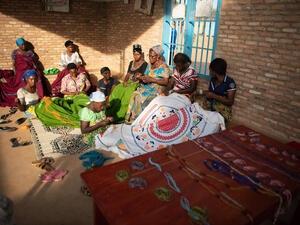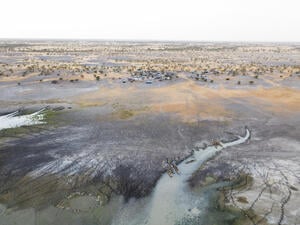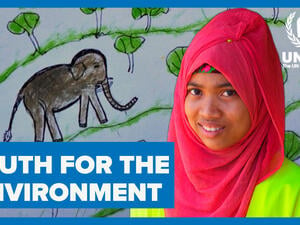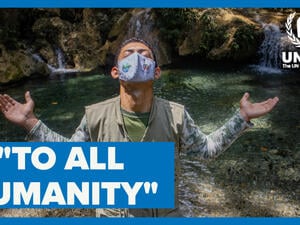Refugees are agents of development, says UNHCR
Refugees are agents of development, says UNHCR
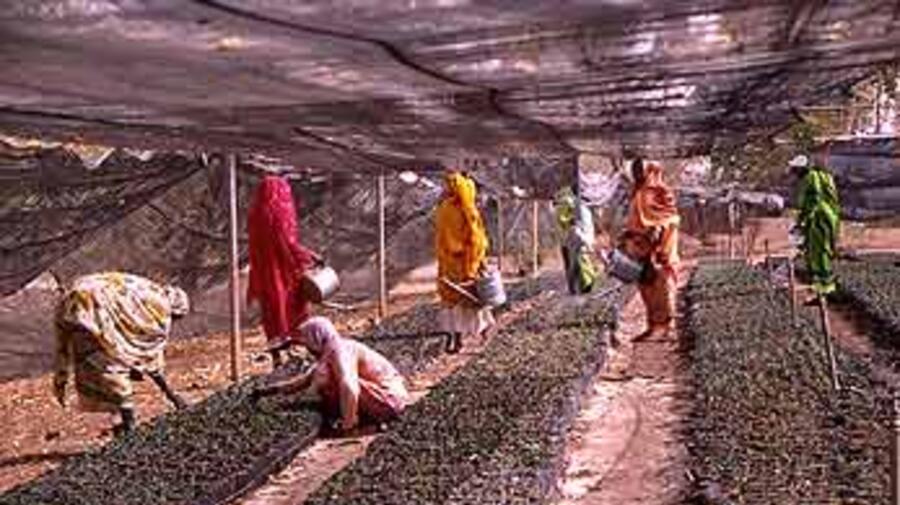
Refugee women in Sudan sow the seeds of development in their host community.
JOHANNESBURG, September 2 (UNHCR) - The UN refugee agency has highlighted the inextricable link between refugees and the environment at the World Summit on Sustainable Development, urging governments to see refugees not as a threat, but as agents of development.
Outlining the relationship between refugees and development, Bemma Donkoh, UNHCR Regional Representative in Pretoria, said at the Johannesburg summit last Friday, "Lack of development contributes, to varying degrees and in various ways, to refugee outflows. The prospect of development makes return to one's country of origin more attractive - basic development initiatives can anchor that return in a climate of hope."
Donkoh cautioned, "The tragedy of forced human displacement must not be compounded by further damage inflicted on the environment of those countries that so generously give a home to the refugees. Environmental management is therefore a policy priority at UNHCR and is relevant in all phases of our work, from emergencies to restoring the environment when a camp or settlement is closed."
The refugee agency's activities, she added, are largely community-based, benefiting not only refugees and returnees, but also local people living close to camps and settlements. They are geared towards developing and enabling a sustainable livelihood for those with whom UNHCR works.
Debunking the myth that refugees are a burden to host countries and the international community, Donkoh said, "We need to see refugees not simply as the beneficiaries of humanitarian aid, but as potential contributors to sustainable development - both in their countries of asylum and upon their return home."
"Peace building, conflict prevention, and sustainable development in countries such as Afghanistan, Sierra Leone, Angola, Sri Lanka, to name a few, will not be possible without the engagement of millions of refugees and internally displaced persons returning home. Their productive capacities and human capital are crucial."


